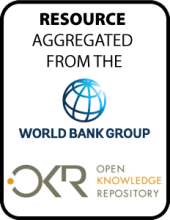Land Library
Welcome to the Land Portal Library. Explore our vast collection of open-access resources (over 74,000) including reports, journal articles, research papers, peer-reviewed publications, legal documents, videos and much more.
/ library resources
Showing items 1 through 9 of 41.Bhutan’s hydropower generation potential
raises the prospect of tremendous development opportunities
for the country: fast increasing export revenue, sustained
economic growth, and rapid poverty reduction. Driven by
This report sets forth details of a financial recovery plan designed to help Vietnam Electricity (EVN), and the Vietnamese power sector more generally, to address a series of complex and interconnected challenges over the next 3 to 10 years.
Bhutan and Botswana share a number of
similarities. The two countries, land locked small states,
have grown rapidly over the past few decades, boosted by
sustained, large-scale inflows of foreign exchange.
The purpose of this paper is to contribute to theunderstanding and discussion of how the costs andbenefits of natural resource development are sharedacross society.
Fragile and conflict-affected situations
might appear incapable of attracting significant flows of
foreign investment due to their often negative international
images and weak enabling environments. However, during the
Within the next two decades Indonesia
aspires to generate prosperity, avoid a middle-income trap,
and leave no one behind as it tries to catch up with
high-income economies. Can Indonesia achieve them? This
The present study examines the
challenges facing municipal governments in FYR Macedonia.
The introductory chapter provides some further context for
these developments, in terms of the challenges they pose
Cities and the people who live in them
account for more than 80 percent of the world's total
greenhouse gas emissions. In addition, more than 80 percent
of the overall annual global costs of adaptation to climate
Within the next two decades Indonesia
aspires to generate prosperity, avoid a middle-income trap
and leave no one behind as it tries to catch up with
high-income economies. These are ambitious goals. Realizing


